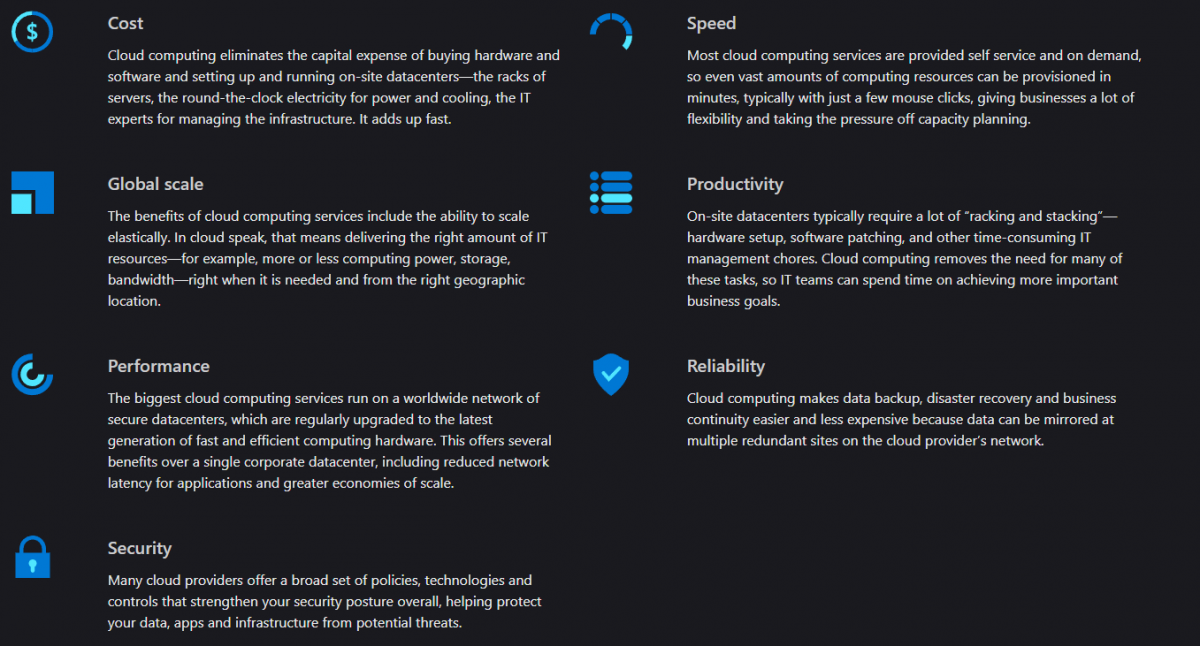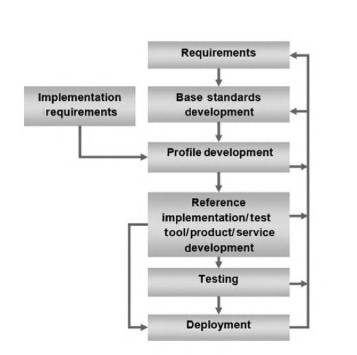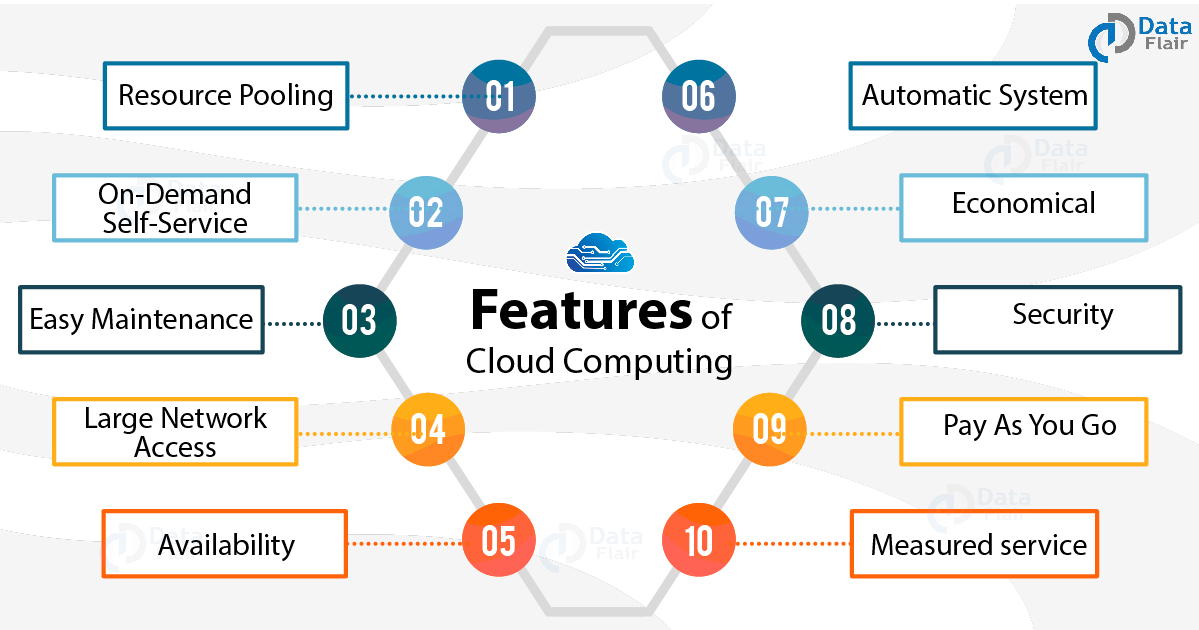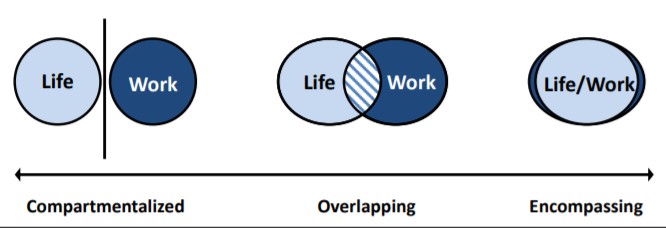Introduction
In a 2013 article in the Guardian, a business director said the following when discussing the introduction of cloud technologies, “the age of work/life balance is over, it’s now about blend” (Davidi). Cloud technologies have indeed revolutionized both the jobs in various sectors and daily life. Its capabilities are increasingly impact the manner firms operate, providing capabilities such as collaboration, workplace mobility, and information access at distance. Washington D.C. is home to numerous government and business organizations that have benefitted or will significantly if the technology is widely implemented. In combination with a highly stressful culture of work in many sectors in D.C. that promote long-hours as well as overloaded infrastructure, cloud computing can potentially shift the status quo of work-life balance.
Washington D.C. Culture and Economy
Washington D.C. serves as the capital of the United States, home to the large federal government. This has also brought numerous firms to the district including legal and lobbying firms, social organizations and thinktanks, and financial institutions. In addition, the region has also become a hub for various technology firms working with the government and other companies. Finally, the city hosts a significant hospitality and tourism sector.
The city’s sectors, particularly federal government, legal firms, and others are known for their long work hours culture. Meanwhile, due to high costs of living with rent for two bedrooms starting at $1,500 is causing many workers to work overtime. Washington D.C. metro area has a population over 6 million people and holds an above average density. The city’s infrastructure is significantly worn due to the number of people commuting to work in the city, with some of the most congested roads and public transportation in the country, resulting in residents spending hours commuting (Harkness).
Cloud Technology

A brief overview of cloud technologies is necessary to demonstrate their purpose and effect on changing the Washington D.C. economy. Cloud computing is a model which enables on-demand convenient access to a shared pool of computing resources. These can include networks, storage, servers, applications, analytics, or artificial intelligence that are provisioned and released with minimal management. The purpose is to deliver these computing services over the internet (“the cloud”). Cloud computing offers various benefits ranging from flexibility and innovation to efficiency and economies of scale. Since the IT resources are stored on the cloud, it creates cost-saving for businesses and effectively provide elastic scaling since the the cloud is virtual and one receives the right amount of IT resources when they are needed at the proper geographic location. Elimination of on-site hardware provides two benefits of eliminating the need for maintenance, taken care of dedicated cloud service providers. Furthermore, it offers the essential benefit of accessibility to all these digital services are available remotely from home and mobile devices with proper access credentials.

Washington D.C. firms and federal governments have taken initiatives to implement cloud computing into the operations of organizations. Due to the sensitive nature of operations, the adoption of cloud technologies has been carefully overseen by the development of standards which focus on areas of interoperability, portability, and security. The cloud services must follow standards of an interoperable platform where providers can work together using various delivery models and securely. The process is painstaking but follows the IT standards life cycle which can be seen at both government and private sector industries as seen in the figure (Metheny 39). Therefore, it can be argued that cloud technologies are effective and well-tested before being integrated into practice, making them reliable to use for professional purposes.
Work-Life Balance

Cloud computing offers a number of features that are integrated into business or organization operations such as on-demand services, accessibility, availability, automation, and economics among others. In the modern digital world, the workday often intrudes into personal lives. Furthermore, in the economic culture of Washington D.C. where domestic and international politics are always turning and affecting markets, policy, and influences on the population, some professionals find themselves constantly on alert or working long hours. While technology does bring work into personal lives, it can also relieve it and establish a better work-life balance.

Work-life relationships are commonly perceived in three distinct categories of compartmentalized, overlapping, and encompassing. Compartmentalized individuals see a clear boundary between work and life and are able to get work done efficiently while rarely using devices for work outside of hours. That is rare, and most individuals hold an overlapping perspective assuming that it is not feasible to separate work and personal life.
They hold an elastic tolerance level on work spilling into personal lives (Sarker et al. 146). This is common among many sectors that deal with international partners with increased globalization and interconnectivity among time-zones, common for Washington D.C.
Cloud computing offers the potential for improved productivity by transforming business operations and offering integration of all fundamental features. For example, Google through its platform which is cloud-based has simplified and integrated email, document collaboration, instant messaging, and video conferencing tools. Better efficiency leads to better overall productivity, allowing to get more done during normal work hours, freeing up more time for personal lives (Weir).
Cloud technologies provide greater opportunity of remote work that holds significant benefits for companies. Employees are more flexible with their time boosting productivity and significantly benefiting their health and well-being. Furthermore, companies can hire for positions in a wider area in the region due to the possibilities. Practically all known challenges of remote work can be easily solved through cloud computing solutions (Messier 167).
The concept of mobility frightens organizations that are fixed, such as many established firms or government agencies. However, mobility ensures a greater level of access to work from any device or network connection that is available, setting up the technological and cultural ability to work from anywhere and collaborate through the cloud-based services. In some circumstances such as the government shutdown seen periodically, or as seen in China with the coronavirus outbreak that could easily impact the United States – such capabilities are highly beneficial for management of time and work-life balance.
Periodic instances of remotely working from home, even if it is one or two days a week has both personal and social benefits. Workers are able to save significant time by avoiding commutes in D.C. and also achieve increased productivity working from the comfort of home. Furthermore, employees are able to dedicate greater parts of such days to family matters or personal development by scheduling appropriately and having the time and capability to get rest.
Research also shows generally less stress in mobility work. Cloud computing serves the purpose of improving the quality of IT services which is positively associated with better work-life balance. Meanwhile, the consequences that concern many enterprises such as lack of discipline and poor social cohesion which may arise with this model, can be mitigated by introducing more virtual networking options and alternating between work-in-the-office and remote-work days (Holland and Bardoel 2580).
Conclusion
Cloud computing is an innovative technology which is seeking greater integration into modern businesses and agencies. Washington D.C. which sees long hours, round-the-clock alertness, and social infrastructure overload, the technologies will positively impact work-life balance. By increasing mobility of remote work capabilities, employees can benefit from increased time otherwise spent on commuting and inefficient productivity waste in the office.
References
Davidi, Adam. “How Is Cloud Computing Enhancing Our Ability to Work Anywhere?” The Guardian. 2013. Web.
Dataflair Team. “Features of Cloud Computing – 10 Major Characteristics of Cloud Computing.” DataFlair. 2019. Web.
Harkness, Peter A. “Washington, D.C., is Experiencing an Infrastructure Crisis” Government Technology, 2016. Web.
Holland, Peter, and Anne Bardoel. “The Impact Of Technology On Work In The Twenty-First Century: Exploring The Smart And Dark Side.” The International Journal of Human Resource Management, vol. 27, no. 21, 2016, pp. 2579-2581. Web.
Messier, Ric. Collaboration with Cloud Computing: Security, Social Media, and Unified Communications. Elsevier, 2014.
Metheny, Matthew. Federal Cloud Computing: The Definitive Guide for Cloud Service Providers. Syngress, 2017.
Sarker, Suprateek, et al. “Managing Employee’s Use of Mobile Technologies to Minimize Work-Life Balance Impacts.” MIS Quarterly Executive, vol. 1, no. 4, 2012, pp. 143-157. Web.
Weir, Jaspar. “ Three Ways Technology Can Help With Work-Life Balance” Forbes. 2019. Web.
“What is Cloud Computing?” Microsoft Azure. Web.
Wiener, Aaron. “ The Prospects for the D.C. Region’s Slumping Economy.” Washington City Paper. 2015. Web.